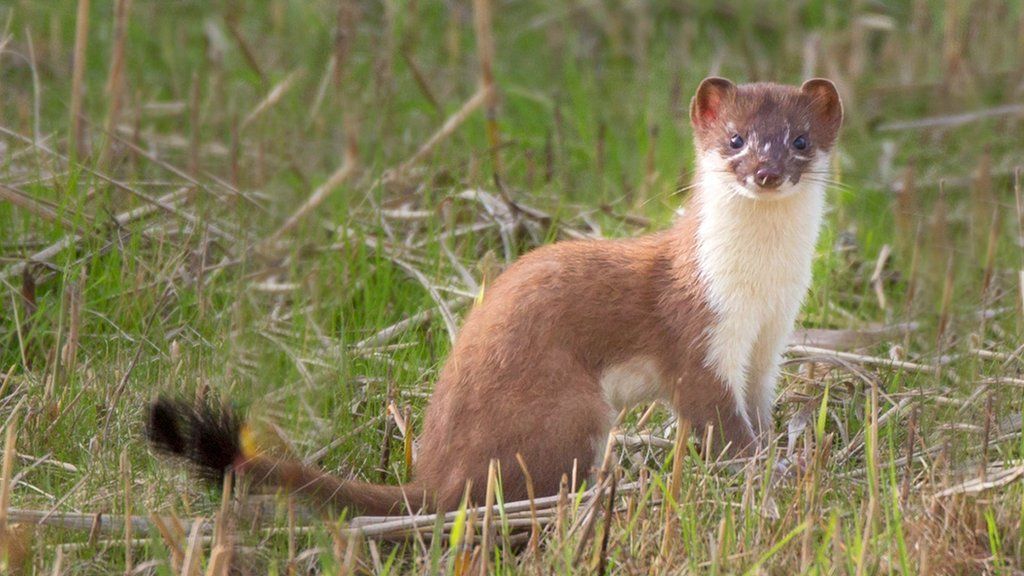Orkney stoat eradication project awarded £6m
- Published

A project to eradicate stoats from Orkney has been given the go-ahead after it was awarded £6m.
The animals are said to pose a threat to internationally-important wildlife.
As a result of the cash injection from the EU's Life fund and the Heritage Lottery Fund, 16,000 traps will be set and specialist dogs trained to detect the stoats.
The Orkney Native Wildlife Project is set to be the largest project of its kind in the world.
Stoats are common in parts of mainland Scotland but they only started appearing in Orkney in 2010.
RSPB Scotland, Scottish Natural Heritage (SNH), and Orkney Islands Council, who are partners in the project, claim they prey on ground nesting birds and other native species such as the Orkney vole.
They believe that eradicating the stoats will help to safeguard the future of the county's wildlife tourism industry.
'Scale unprecedented'
Anne McCall, director of RSPB Scotland, said: "The scale of the project is unprecedented.
"Over the next five years we'll be working with our project partners and Orcadians to ensure that the birds and mammals found in these islands have a secure future and are able to thrive in the long term without the threat of invasive species."
Mike Cantlay, chairman of Scottish Natural Heritage, said: "Invasive species are one of the greatest threats to the beauty and variety of our nature.
"With this important funding, and people and organisations from all backgrounds working together, we can help protect Orkney's internationally-renowned wildlife and landscape for generations to come."
'Important wildlife'
Some critics have questioned why the project is not being funded by governments in London or Edinburgh.
Sarah Sankey from the Orkney Native Wildlife Project in Kirkwall told BBC Radio Orkney: "It's an interesting question, that I can't answer."
She said one of the biggest challenges had been raising the money at all "in this economic climate."
"But I think it's a testament of how important our wildlife is that we have managed to get this money," she said.
She added that the project showed that "we do need to have a responsive pot of money that we can use when invasive species do appear on islands, and that we need a lot of bio-security measures to prevent the animals from reaching other islands."
- Published2 August 2018
- Published5 September 2017
- Published5 June 2017
- Published2 May 2017